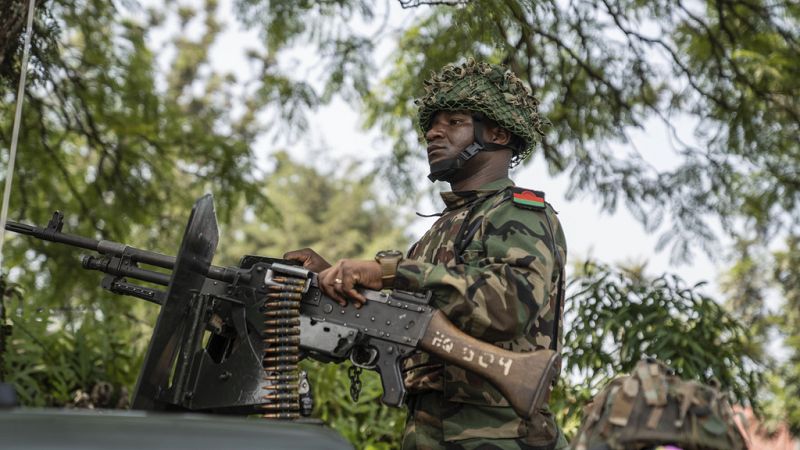SADC extends mandate of its troops in DRC and Mozambique

Southern African leaders agreed Wednesday to extend for another year the presence of regional troops deployed to fight rebels in the conflict-torn eastern Democratic Republic of Congo (DRC). They also pledged to work for peace in Mozambique, where disputed elections have fueled unrest.
The leaders gathered in Zimbabwe's capital, Harare, for an extraordinary summit under the auspices of the Southern African Development Community (SADC), a 16-nation bloc that includes the Democratic Republic of Congo.
Regional power South Africa has committed nearly 3,000 troops to the SADC mission in the DRC, which were deployed last December. Just over 2,000 more troops come from Tanzania and Malawi.
The mission is one of a myriad of forces operating in the mineral-rich region, which has been plagued by decades of armed violence. They include Congolese government soldiers, foreign mercenaries, a United Nations peacekeeping force and more than a hundred groups fighting for power, land and precious mineral resources. Others are trying to defend their communities. Some armed groups have been accused of massacres and ethnic cleansing.
Neighbouring Rwanda has rejected accusations, including those by the Congolese government and UN experts, that it supports the M23, the main rebel group operating in eastern DRC, which is currently experiencing one of the world's worst humanitarian crises, with more than 7 million people displaced.
UN peacekeepers were due to leave the DRC next month, but rising violence in the east of the country by Rwandan-backed rebels has prompted them to stay. Congolese Communications Minister Patrick Muyaya said a new timetable would be drawn up for the force's departure, although he gave no further details.
Regarding Mozambique, SADC leaders, without providing details, expressed their "unwavering commitment" to a peaceful resolution of the electoral conflict that has sparked weeks of protests, leaving at least 30 people dead.
Mozambique's electoral agency said the ruling FRELIMO party and its presidential candidate had won general elections held on October 9. FRELIMO has ruled Mozambique since independence from Portugal in 1975.
Venancio Mondlane, the independent candidate who came in second with 20% of the vote, challenged the result in court and called for protests across the country.
The country’s highest court has yet to rule on the opposition’s challenge. This week, the attorney general’s office filed a complaint against Mr. Mondlane and the Optimistic People for the Development of Mozambique (PODEMOS), the party that supports him, seeking compensation for damage to state property during the unrest.
Outgoing Mozambican President Filipe Nyusi has said he is ready to meet with presidential candidates to defuse political tensions. Mr Mondlane has gone into exile at an undisclosed location, claiming a plot had been hatched to kill him.

